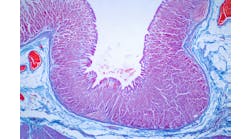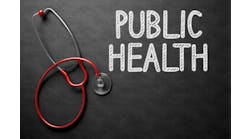What happened last year, when a study was done to test the impact of having electronic messages sent to older Black and Latino patients, with the names of their primary care physicians and the named senders? A statistically significant increase in vaccination rates among those populations, a team of researchers has found.
The article, “Effect of Electronic and Mail Outreach From Primary Care Physicians for COVID-19 Vaccination of Black and Latino Older Adults: A Randomized Clinical Trial,” involved a study of the impact of such outreach. It was published online on June 17 in JAMA Network Open, by a large team of researchers. The researchers were Tracy A. Lieu, M.D., M.P.H.; Eric P. Elkin, M.P.H.; Patricia R. Escobar, M.P.H.; Lucy Finn, M.P.H.; Nicola P. Klein, M.D., Ph.D.; Cimone Durojaiye, M.P.H.; Stephanie Prausnitz, M.S.; Charles P. Quesenberry, Ph.D.; Debora Sawyer, M.D.; Silvia Teran, M.D.; Nancy Goler, M.D.; Stephen M. Parodi, M.D.; and Yi-Fen Irene Chen, M.D.
As the article’s authors write, “Vaccination is a crucial tool for controlling COVID-19, which has caused disproportionately high morbidity and mortality among Black and Latino persons in the US. Vaccination rates among adults in these racial and ethnic groups initially trailed those of Asian and White adults, and uptake in Black adults continues to lag. Possible causes of this gap include worse access, skepticism about vaccine effectiveness or safety, and mistrust. Primary care physicians (PCPs) may potentially play a key role in enhancing COVID-19 vaccination rates, especially for Black and Latino older adults with vaccine hesitancy, because PCPs are trusted sources of information.6,7 However, scant evidence exists about the effectiveness of outreach by PCPs to promote COVID-19 vaccination in these high-risk groups. We conducted a randomized clinical trial of PCP outreach for COVID-19 vaccination among Black and Latino older adults in a socioeconomically diverse population. This study’s objectives were to evaluate the effects of PCP outreach using electronic secure messages and mailings on COVID-19 vaccination among Black and Latino persons aged 65 years and older and to compare the effects of culturally tailored and standard PCP messages.”
And what did the researchers find? “This 3-arm randomized clinical trial compared electronic secure message and mailed outreach from PCPs (culturally tailored or standard PCP outreach) with usual care for Black and Latino individuals aged 65 years and older who had not responded to earlier nonpersonalized email and mailed outreach for COVID-19 vaccination. The intervention period was March 29 to April 22, 2021, with vaccination outcomes followed through May 20, 2021. Interventions were developed by The Permanente Medical Group (TPMG), associated with Kaiser Permanente Northern California (KPNC), an integrated system serving a diverse 4.5 million member population. For this study we selected service areas with relatively low vaccination rates and high proportions of Black and Latino individuals: the California Central Valley, Fresno, South Sacramento, and San Jose. KPNC members aged 65 years and older were eligible” to participate in the clinical trial “if they had been sent prior outreach but had not received a COVID-19 vaccination (in any California location, within or outside KP) or made a vaccination appointment with KP as of March 29, 2021. The prior outreach used emails (or letters when email addresses were not available) from the KP regional COVID-19 vaccination team to invite individuals to book a vaccine appointment online or by telephone.”
What’s more, “Participants in the culturally tailored and standard outreach groups were followed from their first study outreach until first vaccination or until 28 days after their last study outreach. Participants in the usual care group were followed from the date the first study outreach was sent (on March 29, 2021) until first vaccination or until 28 days after the last study outreach was sent on April 22, 2021 (resulting in a maximum observation period of 52 days). The primary analysis used intention-to-treat assignment and compared time to vaccination between each outreach group with usual care using Cox proportional hazards regression. Models included a fixed effect for study group and adjustment for race, ethnicity, and language group and geographic area.”
Ultimately, the researchers write, “This randomized clinical trial found that secure messages and mail outreach sent on behalf of individuals’ own PCPs led to a significant increase in COVID-19 vaccination rates among Black and Latino older adults who had not responded to earlier, less personalized outreach. If this culturally tailored PCP outreach were conducted for all unvaccinated US Black and Latino adults aged 65 years and older, assuming the same additional 2.2-percent vaccination rate were gained, an additional 23, 000 persons nationally may have been vaccinated. This suggests that PCP outreach should not be overlooked as a potentially effective approach for Black and Latino older adults.”
The researchers note that Our study was unique in its focus on Black and Latino older adults. Very few randomized clinical trials of outreach to promote COVID-19 vaccination have been reported. A previous trial in a university-based health system of individuals of all ages and racial and ethnic groups found that text messages increased vaccination rates by 1% among those who had not responded to an earlier text message outreach. In comparison, our trial of PCP outreach using electronic and mailed messages found up to a 2.2-percent increase in Black and Latino older adults who had not responded to earlier, less personalized outreach.”
And here’s something important: the researchers write that “One notable aspect of our study was that electronic messages and mailings were sent in the name of each individual’s own PCP. The increases in COVID-19 vaccination rates we observed aligns with surveys and expert opinion suggesting that physicians are key influencers with their patients. Our finding that electronic reminders for COVID-19 vaccination had significant effects aligns with trials of patient portal or text reminders for influenza vaccination and with other studies of vaccination reminders.”


